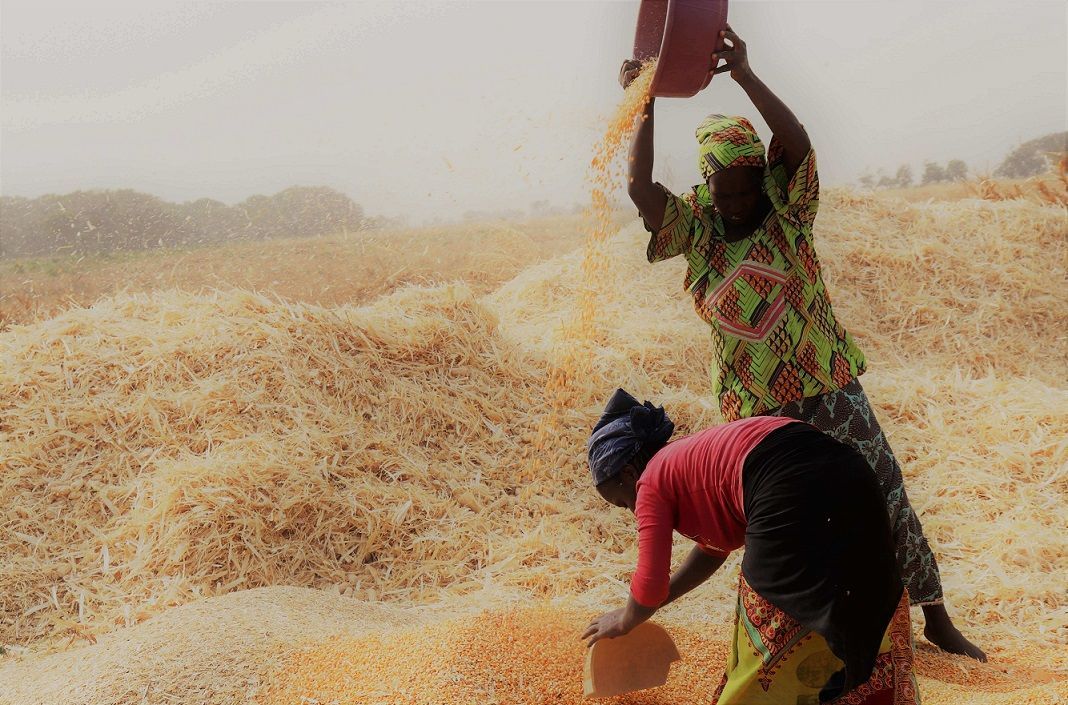Reading time:5 min read
Women in Agriculture - Balance For Better Even on the Farm
As in every relevant sphere of life, it is true that women in agriculture are important - wielding the capacity to make great impact when they are helped and empowered to access the same opportunities as men. At the launch of the National Gender Action Plan (NGAP) on Agriculture in October 2018, the minister for Agriculture and Rural Development, Audu Ogbeh, said that 95% of farmers in Nigeria still operate at the subsistence level, and more than 50% of these subsistence farmers were women. This paints a picture of women in Agriculture in Nigeria being, for the most part, unable to earn from their activities and contribute meaningfully to food supply in the country.
Gender equality and women’s empowerment are crucial steps to achieving food and nutrition security, and enabling poor rural people to overcome poverty. Evidence demonstrates that when women are empowered, there are significant benefits for agricultural production, rural business development, as well as nutritional and educational outcomes of children. This is why a celebration of the International Women's Day cannot be complete for us without looking at the contributions of women in Agriculture, the challenges faced by women in Agriculture and the things that we are looking forward to seeing from all the women who have found and look to find their livelihoods in agric.
Contributions of Women in Agriculture
For inspiration we can start from home. In 2015, AFEX began engaging with a group of women numbering around 200 who were only able to access and use about 2 bags of fertilizers for their farms. They took full advantage of AFEX's offerings growing their membership to include 400 other women and increasing their productivity by over 150% through increased use of quality inputs. By pulling more women into their cooperative, and together increasing their productivity and yields, these women reinforced our evidence backed belief that empowered women indeed empower women and contribute positively to their communities.
Another homegrown success story is one of our female farmers who was recently celebrated at the Grow with Nigeria event organized by Diageo. Hajara Alhassan was one of the farmers who recorded the highest yields from the 2017 season despite a number of relevant challenges and setbacks. She gave a goodwill speech at the event telling an inspirational story about being encouraged to plant sorghum in the last farming season, and how much she has been helped by agricultural development initiatives, which have now enabled her to further her children's education. Hajara and many other women like her are proof that empowered women empower children and create a better future for us all.
Challenges Faced by Women in Agriculture
The immense contributions that women in agriculture can make are often restricted or shut down by a number of challenges. The ability of women to access education, land, inputs and finances becomes a huge factor in their ability to provide for their families or communities and contribute, in the little ways that we have pointed out above and more, to the nation at large.
Some helpful statistics below:
According to The Permanent Secretary, Federal Ministry of Agriculture and Rural Development, Sunny Echono, "Women supply 70 percent of agricultural labor; 50 percent of animal husbandry related activities and 60 percent of food processing, yet they have access to only 20 percent of available agricultural resources."
SIDA's gender tool box points out that in developing countries women are estimated to own less than 20% of farmland and "farms managed by female-headed households are between half to 2/3 of farms run by male-headed households."

In all, women have less access to land, credit, information and technology. They also find it harder to participate politically and face difficulties in terms of mobility. All these hinder their participation and contribution to the agricultural sector.
Looking Forward
The theme for International Women’s Day 2019 is Balance for Better. As the campaign website points out, "Balance is not a women's issue, it's a business issue. The race is on for the gender-balanced boardroom, a gender-balanced government, gender-balanced media coverage, a gender-balance of employees, more gender-balance in wealth, gender-balanced sports coverage..." and, to put a fine-point to this article, a gender-balanced agricultural sector. Indeed "Gender balance is essential for economies and communities to thrive" and we at AFEX will continue to empower women to participate and grow in Agriculture as we have always done.
The agricultural sector in Nigeria must continue to work to achieve more gender balance. At AFEX, one way that we try to go around the problem of women's access to land is by strengthening women cooperatives that pool together resources to engage in agriculture. When these cooperatives are empowered to access loans/ inputs they can increase their yields and productivity and pull more women into their groups thereby increasing the number of female farmers that we are able to reach. About 30% of the farmers that have received services from us are women and we will continue working hard to increase that number.
Happy International Women's Day to women all over the world!
Read Also: SUCCEEDING TOGETHER – COMPANY RETREAT 2018 RECAP
